Watchdog group files complaint in shadowy Marco Rubio super PAC gift
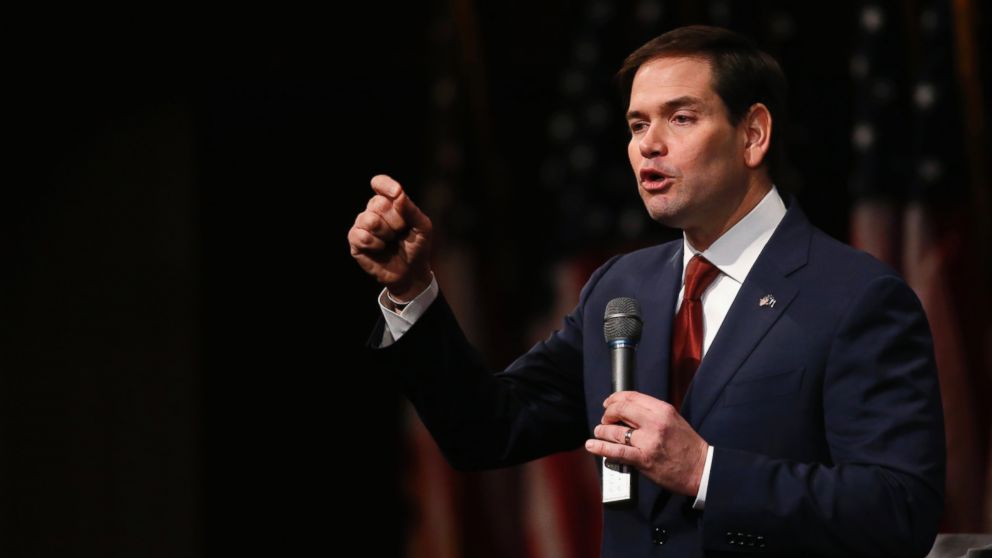
An election watchdog organization filed a complaint Friday with the Federal Election Commission over a $500,000 donation to a super political action committee aiding Marco Rubio from a mystery firm headed by a New York investor. Efforts by good government groups to stem the use of shadowy corporate entities to channel large political donations have been long stymied by the FEC’s internal political paralysis. The complaint from the Citizens for Responsibility and Ethics in Washington, or CREW, seeks an investigation into IGX LLC for masking the donation and to determine whether the Conservative Solutions PAC was aware of the origins of the contribution. The actual donor, Andrew Duncan, of Brooklyn, New York, acknowledged to The Associated Press earlier this month that he had routed his contribution through IGX, a business entity registered last year in Delaware. Noah Bookbinder, CREW’s executive director, the group filed its complaint because “you’re not allowed to use a corporation as a pass-through to hide donations.” He said IGX’s lack of business activity “makes it appear that it was being used as a pass-through.” The CREW complaint cites FEC regulations prohibiting donations “in the name of another person and knowingly permitting one’s name to be used to effect a contribution in the name of another person.” CREW says that if the IGX donation was “knowing and willful,” the matter should be referred to the Justice Department for investigation. Duncan and spokesmen for the super PAC and the FEC did not immediately respond to requests for comment from the AP. Large political donations masked behind limited liability companies have become increasingly common with the rise of super PACS. Donors are obligated under federal law to identify the source of the gifts but are allowed to shield them through corporate entities. In many cases, donors’ identities have been exposed by media or political organizations, but the FEC has yet to rule on recent complaints because the agency’s Democratic and Republican-leaning commissioners remain deadlocked. The agency’s six commissioners are divided evenly between Democratic and Republican appointees and have repeatedly split in recent years along party lines, prompting the FEC’s chairwoman, Ann M. Ravel, to publicly vent frustration last year about its inaction. “We’re very concerned about the stalemate at the FEC, but we feel we have an obligation to take the steps necessary to get action,” Bookbinder said. He said that bringing attention to the issue of masked donors “creates a political cost to donors and campaigns that violate the rules.” Election watchdog groups have filed a spate of FEC complaints about masked donors since the rise of super PACs. The Supreme Court ruling in 2011 in the Citizens United case allows nearly unfettered contributions from corporations and labor unions to political committees. One good government group, the Campaign Legal Center, has filed five complaints. Among them is a 2012 request for a closer look into the use of two Tennessee “straw companies” that channeled $12 million in donations to a super PAC run by the conservative organization, FreedomWorks of America. The money was spent on congressional races. The FEC has yet to rule on the 3-year-old complaint. “It’s infuriating that the FEC hasn’t acted on these cases,” said Paul S. Ryan, deputy executive director of the Campaign Legal Center. In the IGX LLC case, Duncan conceded that he was the source of the money after the AP found a similar $2,700 donation he had made to Rubio’s campaign under his own name and IGX. Duncan, an activist on behalf of human rights in China, told the AP he supported Rubio’s stance on China but was worried about reprisals. Duncan’s corporate shield was one of several that cropped up in federal contribution filings last month. Billionaire Frank VanderSloot of Idaho also gave $175,000 to Conservative Solutions through two LLCs. And a $125,000 donation was made to a super PAC supporting Republican Iowa Gov. John Kasich from HJK LLC, an entity registered to a firm headed by Peter S. Kalikow, the former publisher of the New York Post. Republished with permission of the Associated Press.
Jeb Bush, seeking a much-needed revival in SC, calls in family

Jeb Bush has long kept his family at arm’s length in his effort to become commander-in-chief, but with the South Carolina primary looming, he’s embracing them like never before in the state that has historically stood by the Bush family in its previous White House bids. It’s a drastic shift from the approach he took at the start of his campaign hinting at how precarious his fortunes have become. Now, with his back to the wall, Bush is grabbing hold of the legacy, and hoping his front-row view of the world’s most difficult job means more to South Carolina’s military-minded Republican voters than a few awkward exchanges on the campaign trail ahead of Saturday’s critical primary. In Beaufort, S.C., Wednesday, Bush told an audience he had experienced “watching history unfold, in a unique way,” a reference to his father’s and brother’s wartime administrations. Bush’s best-known South Carolina advocate, the state’s senior Sen. Lindsey Graham, echoed that sentiment, stressing that Bush’s family is one of his biggest strengths and assets. “He understands the job because his brother and his father have had that job,” Graham said. Bush said in an Associated Press interview Thursday that his family legacy is actually what sets him apart from the others. “You get insight into things that are personal.” For example, Bush recounted the days when he saw the “burden of leadership that my dad felt” in the weeks leading up to the 1991 Persian Gulf War. “He didn’t talk specifically about what he was doing, or going to do,” Bush said. “You could just see the burden.” Bush also lists dozens of admirals, generals and Medal of Honor recipients who have endorsed him. And he points to his time as governor in charge of Florida’s robust national guard, consultation with military and foreign policy experts and vigorous foreign travel while in office and as a private businessman as evidence. But the family reference is a stark change from a year ago, when Bush, then weighing a potential run, said of his father George H.W. Bush and older brother George W. Bush during a Chicago speech: “I admire their service to the nation and the different decisions they had to make. But I am my own man and my views are shaped by my own thinking and own experiences.” Bush’s frequent family references this week reflect the name’s popularity in South Carolina, where both the former wartime presidents won the first-in-the-South primary. It also suggests how desperate Bush and his supporters are for signs of momentum, despite having built the 2016 race’s largest combined warchest of more than $150 million. And yet he finished sixth in Iowa’s leadoff caucuses on Feb. 1 and fourth in the New Hampshire primary on Feb. 8. Despite his efforts in South Carolina, where his family name still maintains some political clout, Bush’s attempt to gain traction hit a rough patch this week. The week started on a high note — a joyous reception from audiences as he campaigned with his former president brother, who came out of public political isolation to assist his younger brother’s at a critical juncture in his campaign. But the following day, Bush was ridiculed for posting a picture on Twitter of a handgun, inscribed with his name and given to him by a manufacturer in Columbia he visited. On an outdoor campaign stop in Summerville Wednesday, Bush fielded more advice on how to improve his underperforming campaign than questions about policy. That was the same day Rubio won the prized endorsement of South Carolina Gov. Nikki Haley, even after she met with George W. Bush in Columbia. Even little things wrinkled Bush’s efforts this week. In Summerville, his clip-on microphone didn’t work. And in Myrtle Beach, Bush, who has recently abandoned glasses for contact lenses, complained to staff about the lighting as he left the hall rubbing his eyes. Bush was hoping his fortunes would reverse on Friday when he was scheduled to campaign with his 90-year-old mother Barbara Bush, a beloved figure among a segment of South Carolina Republicans. Barry Wynn, a member of Bush’s national finance team and former South Carolina Republican Party chairman, says he is convinced Bush can benefit from the family’s popularity, but he also acknowledges the pressure Bush faces. Wynn and other Bush supporters have said he needs to beat or finish very close to Sens. Ted Cruz of Texas and Marco Rubio of Florida to justify asking donors to help him finance the next round of campaigning, which includes the Nevada caucuses and, more importantly, the Mar. 1 Super Tuesday primaries. All three trailed billionaire Donald Trump in a scrum according to most public polls of primary voters. “We’ve got to make sure that when they cut off the tail here, we’re not the tail,” Wynn said. “And then we have to have the resources to stay in the game.” MaryBeth Lewis of Florence put it more directly to Bush after a stop Thursday at the farmer’s market in her town. “Go get ’em!” she told Bush as she squeezed his hand. “I’m still standing,” Bush replied. Republished with permission of the Associated Press.
Republican 2016 hopefuls get emotional on eve of SC primary

The Republican battle for South Carolina turned deeply personal on the eve of Saturday’s high-stakes presidential primary, as New York businessman Donald Trump eyed a delegate sweep and his Republican rivals fought for a southern surprise. Texas Sen. Ted Cruz, the son of a pastor, evoked “the body of Christ” in his closing message while fending off allegations of campaign misconduct in a state where most Republicans identify as evangelical Christians. At the same time, Trump allies took subtle shots at Pope Francis for questioning the Republican front-runner’s devotion to Christian principles. Ohio Gov. John Kasich opened up about the death of his parents. And Jeb Bush turned to his mother to help revive his underdog campaign. Friday marked an emotionally charged day in the campaign, with 50 delegates up for grabs in Saturday’s primary contest. Candidates were also trying to stoke some badly needed momentum heading into the next phase of the campaign: March 1’s Super Tuesday. Trump appeared to hold a commanding lead less than 24 hours before voting began in South Carolina. With a big win, the billionaire businessman could take home most, if not all, of the state’s 50 delegates. Such a victory would mark a particularly painful blow to Cruz, whose consistent focus on Christian values and southern roots should have given him a distinct advantage here. As the undisputed Republican front-runner, Trump was a popular target in the final-hours’ scramble for votes. “Trump values are not South Carolina values,” the state’s senior senator, Lindsey Graham, charged during a Charleston rally for Bush. Former first lady Barbara Bush offered a positive contrast with her son’s values: “He’s steady. He’s honest. He is modest. He is kind, and he is good.” Trump’s campaign continued trying to brush off an extraordinary criticism from Pope Francis the day before. When asked about Trump’s call to build a massive wall on the U.S.-Mexican border, the leader of the Roman Catholic Church said those who seek to build walls instead of bridges are not Christian. “I say only that this man is not Christian if he has said things like that,” Francis said aboard the Papal plane. Trump called the Pope’s words “disgraceful” on Thursday, but offered a distinctly softer jab as he courted South Carolina voters on Friday. “Yesterday, the Pope was great,” Trump told an audience in Myrtle Beach. “They had him convinced that illegal immigration was like a wonderful thing. Not wonderful for us. It’s wonderful for Mexico.” Added Trump supporter, pastor Mark Burns: “We respect and honor the Pope. But I don’t know … The walls that are around the Vatican are pretty big walls.” Campaigning in the same city, Cruz tried to take advantage of the spiritual spat by highlighting his own religious devotion. “Every minute that you’re not on the phone calling friends and loved ones, spend beseeching God, praying for this country, that this spirit of revival that is sweeping this country continue and grow, and that we awaken the body of Christ,” the Texas senator said. Cruz also took a veiled shot at Trump’s campaign motto, featured on hats, T-shirts and bumper stickers. “It’s easy to say, ‘Let’s Make America Great Again,’” he said. But, he asked, “Do you understand what made America great in the first place?” While Cruz wanted to be on offense, his campaign faced new questions about a website it created this week attacking Rubio’s record. The site features a photo of Rubio shaking hands with President Barack Obama. After Rubio’s team complained, Cruz’s campaign acknowledged that the photo was manufactured using a computer program. “Every picture in a political campaign is photoshopped,” Cruz spokesman Rick Tyler told FOX News when pressed to explain the tactic. Meanwhile, the lesser-known Kasich continued to highlight his compassionate side. In a television ad broadcast across the state, he spoke of his parents’ deaths at the hands of a drunk driver. “I was transformed. I discovered my purpose by discovering the Lord,” Kasich says in the ad. The day before, the Ohio governor hugged for several moments a teary supporter who opened up about his own personal struggles. Speaking to reporters Friday, Kasich recalled a New Hampshire woman who told him about her child’s fight for sobriety and another in South Carolina who talked about her medical problems. “For some reason people feel safe in telling me stuff,” Kasich said. “There’s a bigger message than about me. Forget me, it’s about all of us having to pay more attention to some other people.” The personal and religious appeals come in a state where religious conservatives typically play an outsized role. In South Carolina’s 2012 Republican primary election, two-thirds of the voters identified themselves as born-again or evangelical Christian. Republished with permission of the Associated Press.
Alabama politicians react to Yellowhammer native, “To Kill A Mockingbird” author Harper Lee’s death
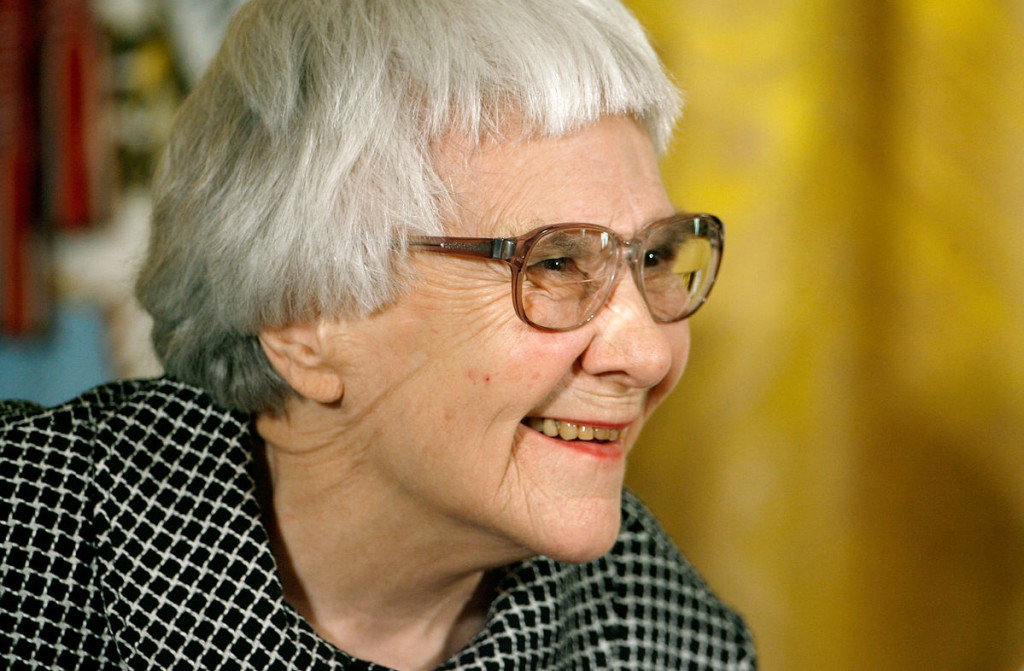
Legendary “To Kill A Mockingbird” author, and Alabama native Harper Lee died Friday, at 89. Lee, who published “To Kill A Mockingbird” in 1960 and won the Pulitzer Prize for it in 1961, was reported dead by multiple sources in Monroeville, Alabama — the town where she grew up and later spent the second half of her life. Soon after the news broke politicians across the state took time to pay their respects. Here’s what they had to say: U.S. Sen. Richard Shelby: Today I join Alabamians and all Americans in mourning the passing of Harper Lee. Ms. Lee’s ‘To Kill A Mockingbird’ will live on as one of the most beloved, classic books in American history. Harper Lee was a true literary legend, and her work has impacted the lives of many. She will be deeply missed. U.S. Rep. Bradley Byrne (AL-01): We have lost an American and Alabama literary giant. Harper Lee, a native of Monroeville, inspired generations, and she will be sorely missed. U.S. Rep. Robert Aderholt (AL-04): Sorry to hear of the passing of Harper Lee. She was an Alabama treasure, and her literary legacy will live on. Gov. Robert Bentley: Today, we mourn the loss of Alabama’s treasured author Nelle Harper Lee. Harper Lee’s literary impact reaches far beyond the borders of our state and nation. “To Kill A Mockingbird” has impacted people around the word. It is because of Harper Lee that the world knows about her special hometown of Monroeville, which celebrated the launch of Lee’s second novel “Go Set A Watchman” last year. Harper Lee’s legacy will live on as we introduce Scout, Jem, Atticus and Lee’s beloved Macomb to future generations. I join Alabamians in praying for Harper Lee’s family and the City of Monroeville in the difficult days ahead. Alabama Attorney General Luther Strange: Alabama has lost a great lady today with the passing of Monroeville’s Nelle Harper Lee at the age of 89. More than 50 years after the publication of her landmark novel, “To Kill a Mockingbird,” her words are still read across the country and around the world. Our thoughts and prayers go out to her family and many friends.
Luther Strange “disappointed” by appeals court ruling in religious liberty case, vows to fight on
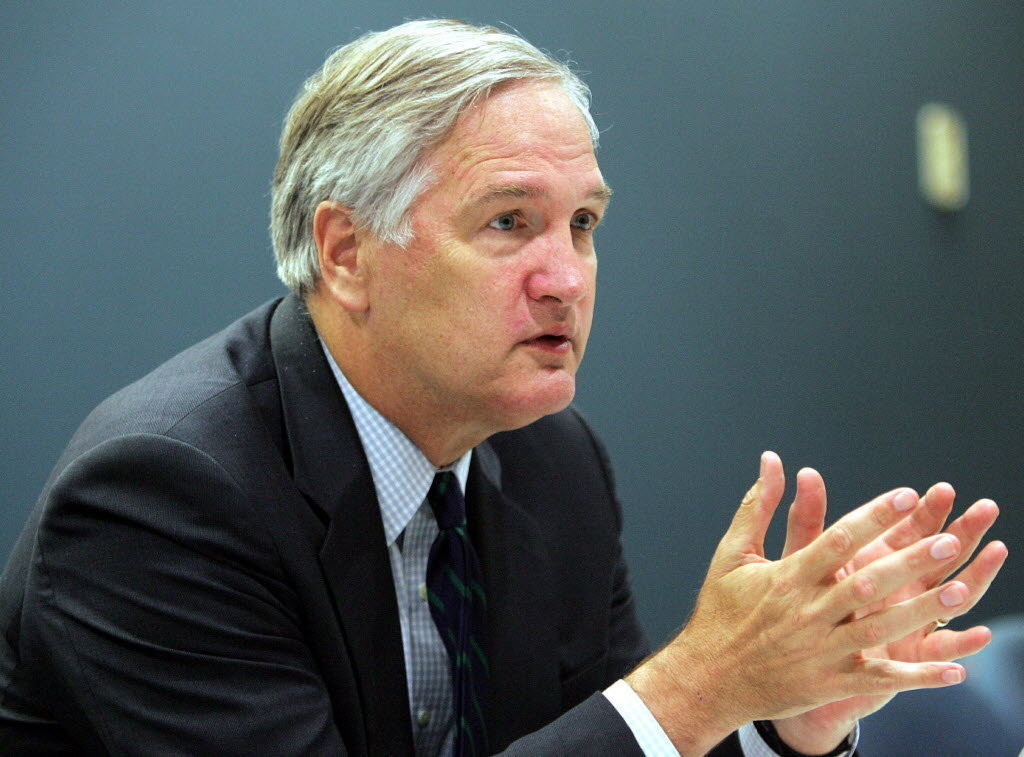
Alabama Attorney General Luther Strange said he was disappointed by a recent federal appellate panel’s decision in a religious liberties case involving broadcast company Eternal Word Television Network, where the Catholic network sought exemptions from a contraception coverage mandate in the Affordable Care Act. EWTN, based in Birmingham, lost their appeal 2-1 on Thursday in the 11th U.S. Circuit Court of Appeals. The prevailing justices ruled the firm must provide contraception coverage to their employees, regardless of their convictions against the practice contraception, which is prohibited in orthodox Catholic doctrine. Strange, however, pointed to another upcoming case whose outcome could vindicate the broadcasters’ court defeat. “I am disappointed in the ruling but the battle to defend religious liberty from federal assault continues as Alabama and 19 other states have joined a similar lawsuit, “Zubik v. Burwell,” before the U.S. Supreme Court this year,” said Strange. “Religious nonprofits like EWTN provide a tremendous service to the public and have no less a constitutional right to exercise their religious beliefs than an individual citizen.” The state of Alabama was a co-plaintiff in EWTN’s case against the federal government’s infringement upon the liberty of religious nonprofits and supported its appeal when a lower court first ruled against them in 2014. Though there are fines associated EWTN’s non-compliance with the law, they have so far been spared having to pay them by an court injunction, pending the outcome by the Zubik case. That decision was also announced Thursday.
Bob Sparks: Another Antonin Scalia is not in the cards, no matter who appoints justice

The already heated political rhetoric about replacing the late Justice Antonin Scalia on the U.S. Supreme Court is a sad spectacle. It is unseemly. Some shared their relief that Scalia was dead via social media. Most showed far more class. Before Scalia’s body had even left the morgue in Texas, the politics of replacing him took center stage, literally. It was the opening topic at Saturday’s GOP debate in South Carolina. Republicans, of course, want another Scalia and are therefore advocating for a Republican president to fill the seat. Democrats, of course, want just the opposite and demand hearings on President Barack Obama’s impending nomination. While I would personally agree with Republicans on the desire to have another brilliant originalist on the court, there will not be another Scalia anytime soon. No matter who is appointed, Democrats can take comfort in that reality. Many of those supporting Justice Scalia did so mostly because he ruled according to their political or personal view of the issue. On the other hand, he infuriated his detractors by being on the “wrong” side of a legal issue and by the pointed way he told them why they were wrong. Scalia made it fun for some non-lawyers, including this writer, to read his opinions. Concurring opinions could sometimes be as entertaining as his scathing dissents. While his writings were enlightening, listening to him outline his view on the role of the judicial branch was another source of education. During his first term, Gov. Jeb Bush brought Scalia to Tallahassee to address the senior leadership of his Capitol staff and agencies. It was one of the most enlightening and educational hours many of us ever spent. The tributes, both kind and grudging, coming his way refer to him as a “conservative jurist.” That description is too simplistic to capture just who Antonin Scalia was. Anyone who truly listened to him describe the roles of all three branches of government as enshrined within the Constitution, came away with a better understanding of the genius of the founders. Those reading his opinions know just how difficult it is to label him merely as a conservative. At the same time, he did openly admit to being a social conservative An “originalist,” meaning one who takes the Constitution by the true meaning of the founders, is the only true legal pigeonhole in which Justice Scalia belonged. He railed against the Supreme Court, or any court, for creating new federal power that was not specifically granted in the Constitution. He thought courts were not empowered to assign new rights by decree. Such power, he believed, should remain with voters and legislatures, unless they ran afoul of the governing document. For example, Scalia joined with the majority to basically unleash more money into politics through the Citizens United decision. He believed the First Amendment prohibited legislatures from placing limits on a constitutionally protected activity (“speech”) as it was defined. That decision enrages liberals to this day. He also joined with the majority in another case where burning the American flag was given a green light. Such activity is protected free speech. “If it were up to me, I would have thrown this bearded, sandal-wearing flag burner into jail,” Scalia said later during a speech. “But it was not up to me.” The Constitution, in that case, won out over personal preference. Conservatives found that case very hard to swallow. Though not part of the decision, Scalia was known to have abhorred Roe v. Wade because it created a right not specified in the Constitution. His views gave Scalia opponents other sources of talking points to use against him during speeches and rallies. Scalia also held the view that using the equal protection clause to protect a fetus was not covered by the Constitution. “You don’t count pregnant women twice,” he said during a 60 Minutes profile in 2008. The Constitution, Scalia believed, is not the living, breathing document others believe it is. Some labeled him a Neanderthal for such thinking. He clearly recognized that society changes, but the remedy was basic. Voters can demand, and legislatures can pass, laws applicable to contemporary times. Courts, he rightly believed, were not lawmakers. Scalia will be missed by those who admired him for his intellect and his sense of humor. Liberal colleagues such as Ruth Bader Ginsberg and Elena Kagan are among them. Those listening to recordings of the Bush v. Gore arguments in 2000 may recall the difficulty Florida attorney Joe Klock had when assigning the wrong name to a justice more than once. Scalia showed his wit as he prepared to ask Klock a question. “Mr. Klock? I’m Scalia,” he deadpanned. Yes, he was. *** Bob Sparks is a business and political consultant and former chief spokesperson for the Florida Attorney General.
Harper Lee, “To Kill a Mockingbird” author, has died at 89

Harper Lee, the elusive novelist whose child’s-eye view of racial injustice in a small Southern town, “To Kill a Mockingbird,” became standard reading for millions of young people and an Oscar-winning film, has died. She was 89. Lee died peacefully Thursday, publisher HarperCollins said in a statement Friday. It did not give any other details about how she died. “The world knows Harper Lee was a brilliant writer but what many don’t know is that she was an extraordinary woman of great joyfulness, humility and kindness. She lived her life the way she wanted to — in private — surrounded by books and the people who loved her,” Michael Morrison, head of HarperCollins U.S. general books group, said in the statement. For most of her life, Lee divided her time between New York City, where she wrote the novel in the 1950s, and her hometown of Monroeville, which inspired the book’s fictional Maycomb. “To Kill a Mockingbird,” published in 1960, is the story of a girl nicknamed Scout growing up in a Depression-era Southern town. A black man has been wrongly accused of raping a white woman, and Scout’s father, the resolute lawyer Atticus Finch, defends him despite threats and the scorn of many. The book quickly became a best-seller, won the Pulitzer Prize and was made into a memorable movie in 1962, with Gregory Peck winning an Oscar for his portrayal of Atticus. As the civil rights movement grew, the novel inspired a generation of young lawyers, was assigned in high schools all over the country and was a popular choice for citywide, or nationwide, reading programs. By 2015, its sales were reported by HarperCollins to be more than 40 million worldwide, making it one of the most widely read American novels of the 20th century. When the Library of Congress did a survey in 1991 on books that have affected people’s lives, “To Kill a Mockingbird” was second only to the Bible. Lee herself became more mysterious as her book became more famous. At first, she dutifully promoted her work. She spoke frequently to the press, wrote about herself and gave speeches, once to a class of cadets at West Point. But she began declining interviews in the late 1960s and, until late in her life, firmly avoided making any public comment at all about her novel or her career. Other than a few magazine pieces for Vogue and McCall’s in the 1960s and a review of a 19th-century Alabama history book in 1983, she published no other book until stunning the world in 2015 by permitting “Go Set a Watchman” to be released. “Watchman” was written before “Mockingbird” but was set 20 years later, using the same location and many of the same characters. Readers and reviewers were disheartened to find an Atticus who seemed nothing like the hero of the earlier book. The man who defied the status quo in “Mockingbird” was now part of the mob in “Watchman,” denouncing the Supreme Court’s ruling that school segregation was unconstitutional and denouncing blacks as unfit to enjoy full equality. But despite unenthusiastic reviews and questions whether Lee was well enough to approve the publication, “Watchman” jumped to the top of best-seller lists within a day of its announcement and remained there for months. Much of Lee’s story is the story of “Mockingbird,” and how she responded to it. She wasn’t a bragger, like Norman Mailer, or a drinker, like William Faulkner, or a recluse or eccentric. By the accounts of friends and Monroeville townsfolk, she was a warm, vibrant and witty woman who enjoyed life, played golf, read voraciously and got about to plays and concerts. She just didn’t want to talk about it before an audience. Claudia Durst Johnson, author of a book-length critical analysis of Lee’s novel, described her as preferring to guard her privacy “like others in an older generation, who didn’t go out and talk about themselves on Oprah or the Letterman show at the drop of a hat.” According to Johnson, Lee also complained that the news media invariably misquoted her. Lee emerged more often over the past few years, although not always in ways she preferred. She was involved in numerous legal disputes over the rights to her book and denied she had cooperated with the biography “The Mockingbird Next Door: Life With Harper Lee,” by Marja Mills. Other occasions were happier. She wrote a letter of thanks in 2001 when the Chicago Public Library chose “Mockingbird” for its first One Book, One Chicago program. In 2007, she agreed to attend a White House ceremony at which she received a Presidential Medal of Freedom. Around the same time, she wrote a rare published item — for O, The Oprah Magazine — about how she became a reader as a child in a rural, Depression-era Alabama town, and remained one. “Now, 75 years later in an abundant society where people have laptops, cellphones, iPods, and minds like empty rooms, I still plod along with books,” she wrote. By 2014, she had given in to the digital age and allowed her novel to come out as an e-book, calling it “‘Mockingbird’ for a new generation.” A new play adaptation of “To Kill a Mockingbird” will land on Broadway during the 2017-18 season under the direction of Tony Award winner Bartlett Sher, written by Oscar-winner written by Aaron Sorkin. Born in Monroeville, Alabama, Nelle Harper Lee was known to family and friends as Nelle (pronounced Nell) — the name of a relative, Ellen, spelled backward. Like Atticus Finch, her father was a lawyer and state legislator. One of her childhood friends was Truman Capote, who lived with relatives next door to the Lees for several years. (A book about Lee in 2006 and two films about Capote brought fresh attention to their friendship, including her contributions to Capote’s “In Cold Blood,” the classic “nonfiction novel” about the murder of a Kansas farm family. Capote became the model for Scout’s creative, impish and loving
Ed H. Moore: Which GOP candidate is most like Ronald Reagan?
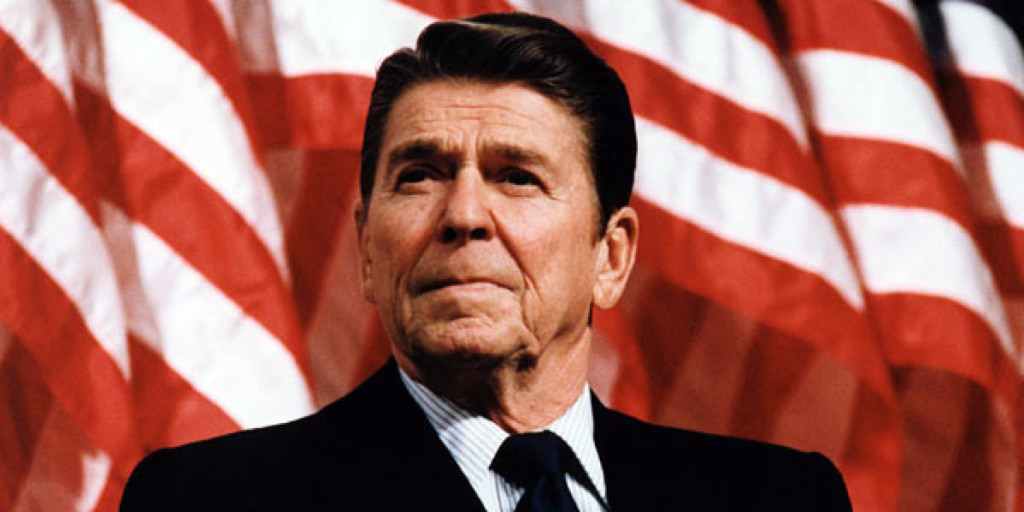
I was sitting in my car eating lunch from a drive-thru and listening to a host who has presumed to speak for all things conservative in America. He was rambling on about which of the current Republican candidates for president was most like Ronald Reagan and concluded it must be Ted Cruz. I nearly choked on my sandwich and then decided to list several of the key elements of the eight years of Reagan’s presidency. Unlike the talk show host, I will not assign the Mantle of Reagan Conservatism upon any specific candidate. I will let you be the judge. History matters a lot, which is why I read historical novels, biographies and even do a monthly radio show on topics in history. When I do speak, I work to let the listeners draw their own conclusions. I present a historical narrative, working to set the times and the temperature of a period, so they do not judge what has come before through the lens of current times. I want listeners to filter out biases, grabbing a slice of time and attempting to see what influenced decisions and actions based on what they knew and what they attempted to accomplish. I am aware of the adage that historians, by writing about the past, can alter what is known in the present to affect the future. Not all historians have an agenda; most do not. But I know that all radio talk show hosts have agendas and use their time to alter perceptions so that the future might be bent to their way of thinking. That is what they are paid to do. We, the listeners, are the filters. So let’s take a look at Ronald Reagan’s history and some decisions and positions he took as president. Do any of them or all of them lead to the conclusion that any single candidate shares his vision, philosophy, and style of governance? You decide. On taxes: When Reagan took office, there were 14 income tax brackets from 14 to 70 percent. He pushed Congress to reduce to two rates, at 15 and 28 percent, although these low levels did not last long. He also got incomes taxes indexed for inflation. He increased corporate and capital gains rates, cigarette taxes, gas taxes and altogether supported a dozen or so increases in various revenue programs. However the significant cuts were in income taxes, all designed to place more money in the hands of the consumers and less in government control. Note he was not rigidly anti-tax, and he worked closely with Congress to modify programs. He was decidedly small government in orientation and believed money should stay as much as possible with those who earned it. During his term, the deficit tripled to about $3 trillion, about 15 percent of what it is today. But we saw a huge growth in military spending during that era. On abortion: He proposed a constitutional amendment to ban all abortions except to save the life of the mother. It didn’t move forward, and he didn’t use much political energy to get it considered. He spoke often against abortion, but few actions were taken. As governor of California, he signed into law a bill that expanded abortion for therapeutic reasons. On Foreign Engagement: Reagan went to Washington determined to push back communism, especially in Latin America. Contrary to the leading 2016 candidate who wants to fully open doors to Cuba, Reagan wanted to make test cases out of El Salvador, Nicaragua and Cuba working to make sure Cuban adventurism was contained. The expansion of communism was thwarted and by the end of his term, the Soviets were in disarray. On Engagement with Congress: Early in his first term he worked with Congress to trade tax adjustments for spending cuts. He was offered a deal of $3 in spending cuts for every $1 of tax increases, and he accepted the “Tax Equity and Fiscal Responsibility Act of 1982.” As years went by, Congress ignored the cuts and focused on revenue enhancements. Reagan started out with a bang, working hard to get the Democrat-controlled House to support him on tax reductions. He worked phones, invited members to the White House and did personal pleas. Reagan wrote in his diary, “These Dems are with us on the budget and it’s interesting to hear some who’ve been here ten years or more say that it is their first time to ever be in the Oval Office. We really seem to be putting a coalition together.” He understood the critical role of being affable, cordial and compromising when he needed to do so. He was nonpartisan in his approach on matters requiring diplomacy, and he pledged to not campaign against any Democrat that voted for his tax and budget bills. Reagan was a master of getting along with people, allies or opposition, and found ways to come out ahead in the deal-making without either party losing face or respect. He revered the Office of the President and would never go into the Oval Office without being dressed for business. He carried himself with respect and was liked by his peers, unlike some running today. He worked hard to convince his opponents of the value of going his way, but profanity and name-calling were not tools of his trade. Maybe we should judge candidates more on comportment, personality and philosophy instead of who speaks the loudest, who is the quickest with a cutting remark or who places himself so far outside Washington they won’t be able to work within Washington to get things done. Who best wears Reagan’s mantle? *** Ed H. Moore resides in Tallahassee, Florida, where he is perpetually awaiting a rebirth of wonder.
Donald Trump’s lead narrows; Marco Rubio, Jeb Bush battle for 3rd in South Carolina
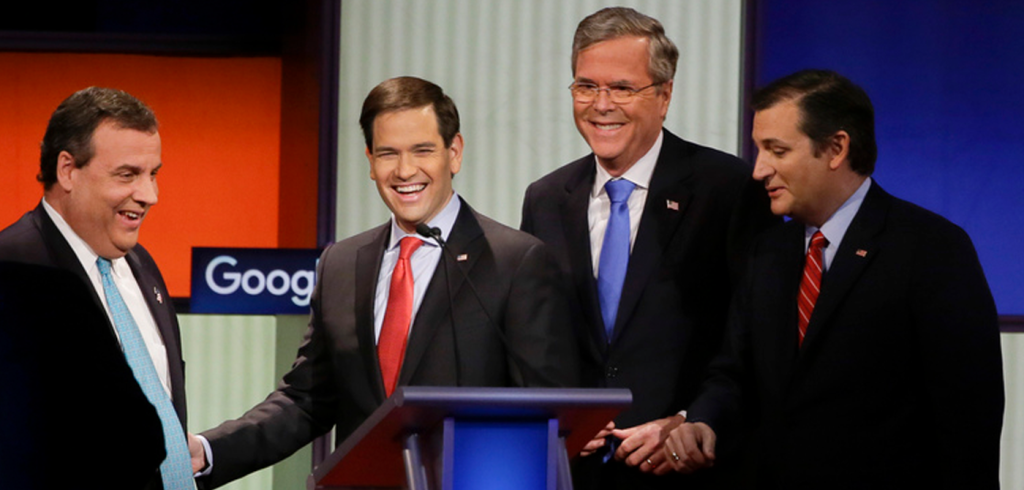
With just one day before the South Carolina primary, Donald Trump’s lead in the Palmetto State is narrowing. Trump still leads the pack, according to a new NBC News/Wall Street Journal/Marist poll of likely South Carolina Republican primary voters; however, Ted Cruz is now within 5 points of the New York businessman. Trump gets 28 support from likely GOP primary voters, followed by Cruz at 23 percent. Marco Rubio is at 15 percent, while Jeb Bush is at 13 percent. Rubio and Bush are in a statistical tie for third, according to the NBC/WSJ/Marist poll. John Kasich and Ben Carson are both polling at 9 percent. The new South Carolina poll might be an outlier, though. All other recent polls have Trump leading by a wide margin. An Emerson College Polling Society poll released this week found Trump was leading the field with 36 percent support. In that poll, Trump led his nearest competitor (Rubio at 19 percent) by 17 points. A Fox News poll released Thursday found Trump was at 32 percent and led his nearest competitor (Cruz at 19 percent) by 13 percent. On the Democratic side, Hillary Clinton leads Bernie Sanders, 60 percent to 32 percent. The NBC/WSJ/Marist poll was conducted from Monday through Wednesday. The poll surveyed 722 likely GOP primary voters and 425 Democratic voters. The GOP poll has a margin of error of 3.6 percent; while the Democratic survey has a margin of error of 4.8 percent. The South Carolina Republican primary is Saturday. Democrats head to the polls in the Palmetto State on Feb. 27.
AP Poll: Voters increasingly see Bernie Sanders as electable
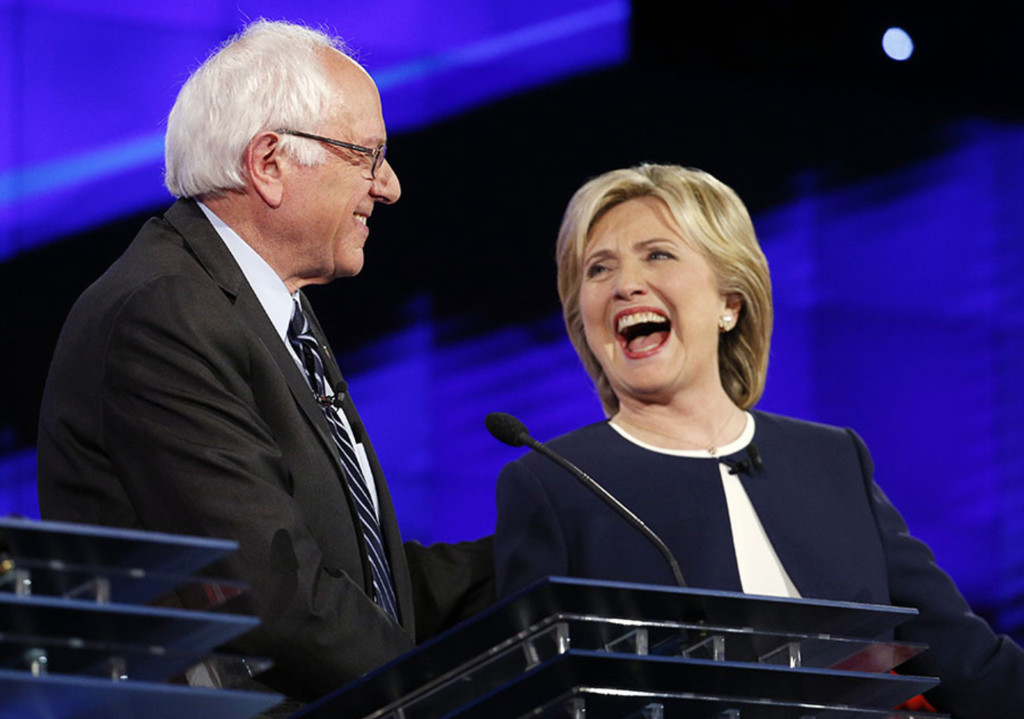
The more Democrats learn about Bernie Sanders, the more they appear to like him. A greater percentage of Democratic registered voters view the Vermont senator as likable, honest, competent and compassionate than they did just two months ago, according to a new Associated Press-GfK poll. Seventy-two percent now believe he could win the general election, a 21 percentage point increase from the last time the survey was conducted in December. The findings underscore the challenge facing Hillary Clinton as she enters the Democratic contest’s pivotal spring stretch, when primaries across the country mean that many of the party’s voters will finally get their say on her candidacy. Clinton’s campaign has argued that as voters learned more about his record, Sanders will begin to lose support. Instead, it seems that as Sanders has gotten more scrutiny, support for him has only grown. While Clinton continues to be the Democratic candidate who’s most well-liked within her own party, Sanders is gaining on her. Woodrow Benford, 58, who lives outside Minneapolis, says he didn’t know much about Sanders before he announced his presidential bid, but now Benford plans to caucus for him on March 1. “Some changes need to be made, some major changes – he’s addressing them,” he said. “I like Hillary Clinton; don’t get me wrong. But she’d never say she’s going to break up the big banks.” Though Sanders is gaining ground with Democrat voters, Clinton maintains a commanding lock on the party’s leadership. An Associated Press survey of superdelegates, who are influential in picking the nominee, found that 449 of the party insiders back Clinton, while only 19 support Sanders. If they continue to back Clinton overwhelmingly – they can change their minds- Sanders would have to win the remaining primary contests by a landslide to catch up. Seventy-four percent of Democratic registered voters say they have a favorable view of Clinton, compared with 64 percent who say the same of Sanders. That’s a 10-point increase for Sanders from December, when 54 percent of Democratic registered voters held a favorable opinion of him. But 16 percent of Democratic registered voters still say they don’t yet know enough about Sanders to form an opinion. “I know a lot of my Democratic friends are telling me, ‘Feel the Bern,’ but I can’t say that I like him or dislike him,” said Mona Lamberson, 59, of North Philadelphia. “He’s kind of new to the game.” Since December, Sanders has gained on other measures, too. Six in 10 say he’s at least somewhat decisive, after half said so in the earlier poll. And 64 percent call him competent, after 55 percent said so in December. Sanders is also more likely to be viewed as very or somewhat honest than he was in December, 64 percent to 56 percent. On that issue, he has a nine percentage point edge over Clinton, who’s viewed as honest by 55 percent of Democrats. Sanders is the only candidate in either party who’s viewed as somewhat or very compassionate, honest and likable by at least half of all registered voters, and has a significant advantage over Clinton among all voters on each of those measures. Just 30 percent of all voters consider Clinton honest. “I was going to bite my tongue and vote for Hillary, but I never really trusted her,” said Robert Stone, a 59-year-old from Hilton Head, South Carolina, who already cast an absentee ballot for Sanders. “Every time she opens her mouth, I can’t help but think she’s lying about something.” But the poll also finds that Clinton maintains a variety of advantages over Sanders. Nine in 10 Democratic registered voters say they think she could win a general election, a 16-point margin over Sanders. She has a 13-point advantage on being viewed as at least somewhat decisive, and a 15-point advantage on being viewed as competent. Democratic voters are slightly more likely to say that Clinton represents their positions on the issues very or somewhat well than say the same about Sanders, 73 percent to 63 percent. Minority and women voters appeared more likely to describe her as likable and inspiring. “He’s a very nice boy, but I think it’s all pie in the sky, what he has to offer,” said Renee Gold, 83, of Sarasota, Florida. “Clinton is strong, I admire her and I think if she were to be elected, it would be a good presidency.” Clinton and Sanders are each viewed positively by about 4 in 10 registered voters overall. But while all registered voters are about evenly divided in their opinions of Sanders, more than half have an unfavorable view of Clinton. Still, 52 percent of registered voters say they would at least consider voting for each Democrat in a general election, putting them at least slightly higher than every Republican candidate but Marco Rubio on that measure. — The AP-GfK Poll of 1,033 adults, including 389 Democratic or Democratic-leaning registered voters, was conducted online Feb. 11-15, using a sample drawn from GfK’s probability-based KnowledgePanel, which is designed to be representative of the U.S. population. The margin of sampling error for all respondents is plus or minus 3.4 percentage points, and is plus or minus 5.5 percentage points for Democratic voters. Respondents were first selected randomly using telephone or mail survey methods, and later interviewed online. People selected for KnowledgePanel who didn’t otherwise have access to the Internet were provided access at no cost to them. Republished with permission of the Associated Press.
Federal appeals court rules against Alabama network on contraception mandate

A federal appeals court in Atlanta on Thursday upheld a contraceptive mandate included in the president’s health care law but is delaying the implementation of its ruling until the U.S. Supreme Court can weigh in on the issue. A three-judge panel of the 11th U.S. Circuit Court of Appeals ruled 2-1 to reject challenges to the mandate in a single opinion addressing two separate cases, one filed by nonprofit organizations affiliated with the Catholic Church in Georgia and the other by Catholic broadcaster Eternal Word Television Network in Alabama. The organizations had argued the mandate and a related rule against those entities would violate the Religious Freedom Restoration Act of 1993, which prohibits the government from imposing a substantial burden on a person’s religious practice. The U.S. Supreme Court is scheduled to hear oral arguments March 23 on the question, and the 11th Circuit said the mandate and associated opt-out rule should not be enforced against the Georgia and Alabama organizations until the high court rules. Under the health care law, most health insurance plans have to cover all Food and Drug Administration-approved contraceptives as preventive care for women, free of cost to the patient. Catholic dioceses and archdioceses are exempt from the mandate, but the other affiliated organizations, including schools, charitable institutions and hospitals are not. Those groups are required to submit a form to their third-party insurers saying they object to the coverage. The insurer will then make the coverage available at no cost to the institution or the employee. The religiously affiliated groups had claimed that this requirement was overly burdensome to their practice of their religion because it makes them a party to something that is against their religion. “Congress included the contraceptive mandate in the ACA to improve women’s health and public health generally. There is no evidence whatsoever that the mandate was enacted in an attempt to restrict religious exercise,” Circuit Judge Jill Pryor wrote in the majority opinion. In a dissenting opinion, Circuit Judge Gerald Tjoflat decried government efforts to “force them to participate in a complicated regulatory scheme.” “Doing so, these parties sincerely believe, would make them complicit in violating the sanctity of human life,” he wrote. EWTN chairman and CEO Michael P. Warsaw said in an emailed statement that the broadcaster is extremely disappointed. “This decision by the Court of Appeals ignores the arguments that EWTN and numerous plaintiffs around the country have made with regard to this mandate,” he said. “In effect, this decision orders EWTN to violate its religious beliefs and comply with the government’s HHS mandate or pay massive fines to the IRS.” EWTN, which has studios in the Birmingham suburb of Irondale, offers programming available in more than 140 countries and territories. Lawyers for the Georgia Catholic organizations did not immediately respond to after-hours emails seeking comment Thursday. Republished with permission of the Associated Press.
Airbnb to collect, pay taxes on behalf of Alabama hosts

In a news release this week, the Alabama Department of Revenue (ADOR) announced that Airbnb will begin collecting remitting taxes for the department on its host sites in Alabama. Airbnb is a San Fransisco-based company that provides an online place to “list, find and rent short-term lodging,” most often in the houses of willing homeowners. The service offers a more personal lodging space for travelers interested in lower fares and a unique experience. In the past, taxes have been paid to the states by those people opening their homes for short-term lodging, a process that made it difficult for the state to collect and oversee such payments. The new agreement will have the company personally collecting the state’s Transient Occupancy Tax. This agreement adds Alabama to the list of a handful of other states already operating in this fashion. “This agreement will increase compliance in this area, and I commend Airbnb’s willingness to take the steps necessary to ensure that the appropriate taxes are being remitted,” ADOR Commissioner Julie Magee said in the news release. “It’s a win for both the state and for Airbnb customers.” The release goes on to say that the agreement with Airbnb will be a “huge benefit” for the state and generate “additional, much needed revenues.” Currently, there are more than 300 Alabama homes eligible for lodging on Airbnb’s website, some as low as $37 a night, with the majority in the Birmingham area.


